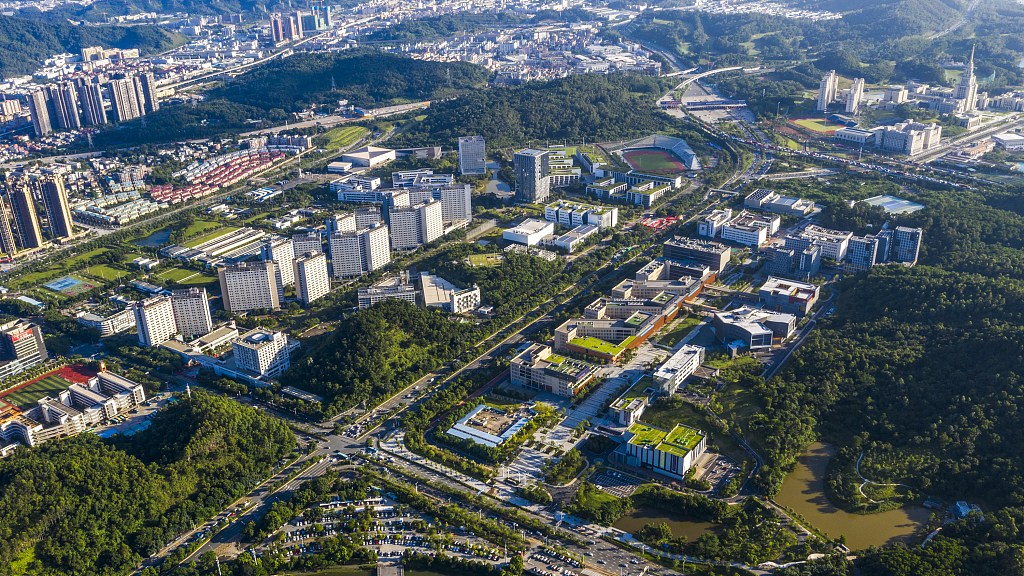Striving to boost campus diversity
By ATLAS SHAO in Hong Kong | China Daily | Updated: 2024-10-29 09:25

In just a decade, the Chinese University of Hong Kong, Shenzhen, in Guangdong province, has grown into a leading educational institution with around 12,000 students, officials said Friday during a media tour showcasing the university's development.
The university, established in 2014 on a previously undeveloped tract in Shenzhen's Longgang district spanning 1.33 square kilometers, is now focused on increasing its contributions to China's talent pool with a spirit of innovation and inclusivity, according to Xu Yangsheng, president of CUHK-Shenzhen.
Starting next academic year, the university will begin accepting students through Hong Kong's Diploma of Secondary Education, a move aimed at attracting more Hong Kong students and boosting campus diversity.
The university currently operates seven undergraduate schools and a graduate school, offering a total of 28 undergraduate and 46 postgraduate programs.
Xu highlighted the institution's efforts in recruiting top-tier faculty members, particularly in economics and finance, noting that its 135 full-time professors in those fields were all recruited from prestigious global universities.
"Even top domestic universities like Tsinghua and Peking universities have only about 60 to 70 professors of this caliber," he said.
CUHK-Shenzhen also admits students from Hong Kong, Macao and Taiwan via specialized entrance exams, with 23 students from these regions joining this year — 20 of whom are from Hong Kong, said Cai Xiaoqiang, the associate vice-president of the university.
Cai noted that the university's new Diploma of Secondary Education pathway would likely boost interest among Hong Kong students in popular programs such as medicine, which may have more enrollment spots than similar programs at the university's main Hong Kong campus.
The university's School of Medicine, led by founding Dean Davy Cheng, has the distinction of being the first Hong Kong medical school established on the Chinese mainland.
Cheng said he believes it will play an important role in developing medical professionals for the Greater Bay Area and potentially ease pressure on Hong Kong's healthcare system. Medical students who meet Hong Kong's licensing requirements will be eligible to practice there, he said.
In addition to CUHK-Shenzhen, three other Hong Kong universities — Hong Kong Baptist University, the Hong Kong University of Science and Technology and the City University of Hong Kong — operate in Zhuhai, Guangzhou and Dongguan, all in Guangdong. The University of Hong Kong, Hong Kong Polytechnic University and Hong Kong Metropolitan University are also preparing new campuses in Guangdong's Shenzhen, Foshan and Zhaoqing.
atlasshao@chinadailyhk.com
























